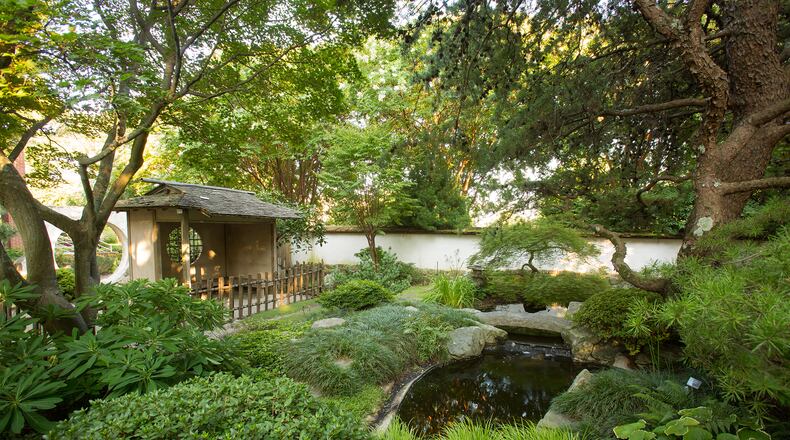When Phillip Evans visited the Atlanta Botanical Garden with his family in October 2014, his holstered handgun was in plain view.
Upon seeing it, a Botanical Garden employee stopped the Gwinnett County resident and told him only law enforcement officers could bring guns on the premises. Evans, who was escorted off the property, later filed a lawsuit asserting his right to carry his handgun on the 30-acre site.
On Wednesday, the Georgia Supreme Court heard arguments in Evans’ case, which has the potential to have a far-reaching impact.
At issue is the interpretation of a law passed in 2014 by the General Assembly. It says that gun owners with valid permits can carry their weapons in every location of the state, with some exceptions. One exception states that “persons in legal control of private property through a lease … shall have the right to exclude or eject a person who is in possession of a weapon or long gun on their private property.”
There is no dispute that the Botanical Garden is a private entity, but it obtained a 50-year lease for its property from the city of Atlanta. The key question before the court is whether the garden's land is public or private. So far, a Fulton County judge and the Georgia Court of Appeals have ruled that the Botanical Garden can prohibit visitors with firearms because it is a private property.
John Monroe, a lawyer for the gun-rights group GeorgiaCarry.Org, told the justices the Botanical Garden is public property because the land is owned by the city. For this reason, the exception in the 2014 law doesn’t apply to it, he said.
In a legal brief filed with the Georgia Supreme Court, the Metro Atlanta Chamber said such an interpretation would “threaten havoc” on the many businesses that lease properties from public entities. It would mean residential apartment complexes, day-care centers, bars, performance venues and major sports stadiums on public property could not exclude or eject people carrying firearms, the chamber said.
During the arguments, Justice David Nahmias raised similar concerns.
Assume I have a $2 million lake house that’s on public land, he said. Is that considered public property?
When Monroe answered yes, Nahmias said, “That’s going to be a shock to a lot of people.”
Justice Nels Peterson also made reference to a person who lives in a house on public land and doesn’t want people with guns entering his home.
Does this mean if I invite people over for a party and someone brings a gun, I can’t kick them out? he asked. “How has that not violated my property right to eject whoever I want?”
Although the justices fired pointed questions at Monroe, they did the same with Jim Grant, the lawyer representing the Botanical Garden. They noted that the Legislature, when it passed the 2014 gun-carry law, changed the wording of a 2010 carry law to allow only leaseholders of “private property” to prohibit firearms.
Grant argued that a 1963 precedent set by the state high court should decide the issue. In that case, Delta Air Lines, which was leasing a tract of land from the city of Atlanta, argued that it didn’t have to pay ad valorem taxes on the land because the land was public property. But the Supreme Court disagreed, saying it was in private ownership just like any other privately owned land.
But some members of the court weren’t so sure that decision was applicable. The court is expected to issue its decision in the coming months.
About the Author
The Latest
Featured





